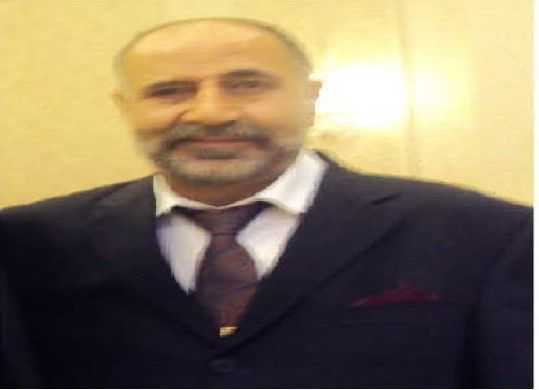The arrest of 66-year-old Bruce McArthur in the deaths of two gay men who vanished from Toronto’s downtown shocked the city’s LGBTQ community and cast a spotlight on the disappearance of three other men in the Church and Wellesley area.

McArthur, a self-employed landscaper, was charged with two counts of first-degree murder as part of a police investigation into the presumed deaths of Selim Esen and Andrew Kinsman.
McArthur made a brief court appearance Friday morning wearing grey pants and a dark sweater. He was remanded into custody and is scheduled to return to court Feb. 14 at 9 a.m. via video.
READ MORE: Suspected serial killer charged in deaths of 2 missing men from Church-Wellesley Village
Esen and Kinsman were reported missing in April and June of 2017 respectively and police believe the men were killed on or about the same day they went missing, according to court documents.
Their bodies have yet to be found.
Toronto Police have said that McArthur had a sexual relationship with Kinsman, 49, but have not said what McArthur’s relationship was with Esen, 44.
“We believe he is responsible for the deaths of Mr. Esen and Mr. Kinsman, and we believe he is responsible for the deaths of other men who have yet to be identified,” Homicide Detective-Sgt. Hank Idsinga said Thursday.
WATCH: Toronto’s ‘village’ community reacts to arrest in cases of two missing men

Police had launched Project Houston to investigate the disappearances of three other men — Abdulbasir Faizi, Skandaraj Navaratnam, and Majeed Kayhan, who vanished from 2010-2012. The investigation failed to provide any answers.
All three men were regulars to the Church and Wellesley, considered to be the heart of Toronto’s gay community. All three men were brown-skinned, had similar physical features, and were similar in age.
Erin Grittani, manager at the Glad Day Bookshop on Church Street, said it’s been “a very scary time” for members of the community.

Get breaking National news
“It’s terribly sad and it’s very scary,” she said. “Hearing that police think there are more men that could potentially be victims of this monster is terrifying.
“I hope the families of these men are getting the support they need.”

Skandaraj Navaratnam, also known as “Skanda” to his friends, was reported missing Sept. 16, 2010. He was last seen leaving Zipperz, a popular gay bar in the Church and Carlton St. area, with an unknown man on Sept. 6, according to police.
He was just 40 years old at the time of his disappearance.
A Facebook profile appearing to belong to McArthur showed he was friends with Navaratnam.

Abdulbasir “Basir” Faizi, who was 44 at the time, was reported missing on Dec. 29, 2010, to the Peel Regional Police Service. Faizi’s car was found abandoned on Moore Ave. and he was also last seen in the Church and Wellesley area.

On Oct. 25, 2012, Majeed “Hamid” Kayhan, who was 58 at the time, was also reported missing to police and was last seen on Oct. 14, 2012. He like, Skanda and Basir, were “active” in the Church and Wellesley community.
“We are trying to identify whether they may have become victim to Mr. McArthur as well,” Idsinga said told reporters Thursday.
The detective are not using the term “serial killer” in their investigation.
“It’s a media definition for serial killer. I’m telling you he’s killed two people that we know of and we believe there are more victims, so whether you want to attach that label or not, it’s up to you,” Idsinga said.
READ MORE: What we know about suspected Toronto serial killer Bruce McArthur
Grittani pointed to the deaths of Tess Richey, whose body was found in the Church and Wellesley area by her mother, and Alloura Wells, a transgender woman whose body was found in August, and said there needs to be more engagement from Toronto police.
“There needs to be more attention paid. There needs to be more actively engaged police presence,” she said.
In December, Police Chief Mark Saunders told the public that “the evidence today tells us that there is not a serial killer.”
“In policing what we do is follow the evidence, and what I said at the time that I said it was accurate at the time,” Saunders said Thursday.
Some members of Toronto’s LGBTQ community are upset their concerns regarding a killer weren’t heard soon.
Alphonso King and his husband John Allan, who knew Kinsman, were felt police had put lives at risk by ignoring the community’s concerns.
“They guaranteed us the cases weren’t related. They guaranteed us there wasn’t a serial killer around, and that’s exactly what it turned out to be,” Allan said. “So that’s why we’re pissed off.”
Grittani said while there is a sense of relief in the community, she hopes this case will lead to changes by police.
“The community has been looking for a response for a long time,” Grittani said. “We want a safe and thriving community. We don’t want to be worried. We don’t want to be scared. We want to feel protected and supported.”
*With files from Caryn Lieberman

_848x480_1140865091731.jpg?w=1040&quality=70&strip=all)










Comments
Comments closed.
Due to the sensitive and/or legal subject matter of some of the content on globalnews.ca, we reserve the ability to disable comments from time to time.
Please see our Commenting Policy for more.